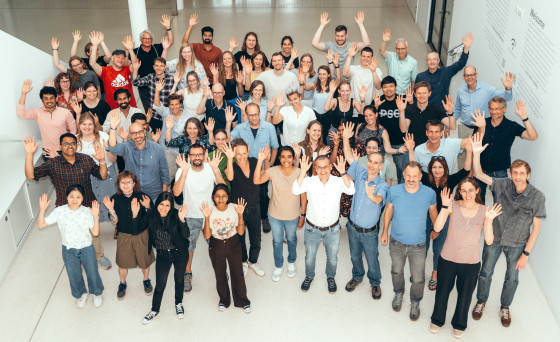
€24 million for two Collaborative Research Centres
The German Research Foundation (DFG) announced on November 21st (Friday) that two research consortia at the University of Münster will receive multi-million-euro funding. A new Collaborative Research Centre (CRC) focusing on human reproductive biology and the causes of male infertility is to be established, with funding of around €12 million. Additionally, the DFG is extending the CRC 1348 'Dynamic Cellular Interfaces: Formation and Function' for another four years, providing approximately €12 million in support. A total of nine new and 32 existing research consortia across Germany will receive funding.
The new CRC 'Principles of Reproduction – Unravelling the Molecular Mechanisms of Male Infertility' focuses on male infertility. "Worldwide, more than 50 million couples are affected by infertility, and in half of the cases, it is due to the man. Yet, the underlying reasons remain largely unknown, " explains Prof. Frank Tüttelmann, Director of the Centre for Medical Genetics at the University of Münster. 'Our aim is to close these knowledge gaps, deepen our understanding of the basic biological principles of human reproduction, and, thereby, also improve reproductive medicine.'
This will primarily benefit the female partners of infertile men, as they bear most of the risks associated with treatment. To this end, the University and University Hospital in Münster are collaborating with the Max Planck Institute in Münster and the RWTH Aachen. Experts in molecular biology, cell biology, physiology, genetics, and computer science are investigating the genetic, molecular, and cellular processes that regulate testicular function, sperm production and function, fertilisation, and early embryonic development. The research draws mainly on samples from infertile men, made possible by the close integration of basic research and clinical medicine in Münster.
The research team aims to rapidly translate new scientific findings into clinical practice, enabling the early and precise diagnosis of male infertility and associated comorbidities. The scientists are convinced that this will allow to personalise treatment decisions, improving care for infertile couples.
Spokespersons: Prof. Frank Tüttelmann (Centre for Medical Genetics, University of Münster and Münster University Hospital (UKM)), Prof. Timo Strünker and Prof. Nina Neuhaus (both from the Centre for Reproductive Medicine and Andrology, University of Münster and UKM).

To unravel these processes, the researchers combine expertise from various disciplines, including computational modelling, organic chemistry, structural biology, genetics and molecular cell biology. The consortium comprises 27 researchers from the Faculties of Biology, Chemistry, and Medicine at the University of Münster, the Max Planck Institute for Molecular Biomedicine, and a group at the TU Dortmund University.
Spokesperson: Prof. Stefan Luschnig (Institute for Integrative Cell Biology and Physiology, University of Münster).
Collaborative Research Centres:
CRCs are interdisciplinary research centres at universities that are funded by the German Research Foundation (DFG). Designed to run for up to twelve years, they enable the pursuit of particularly innovative and complex research projects. The University of Münster currently coordinates five CRCs, and researchers are also involved in numerous other cross-university consortia.
